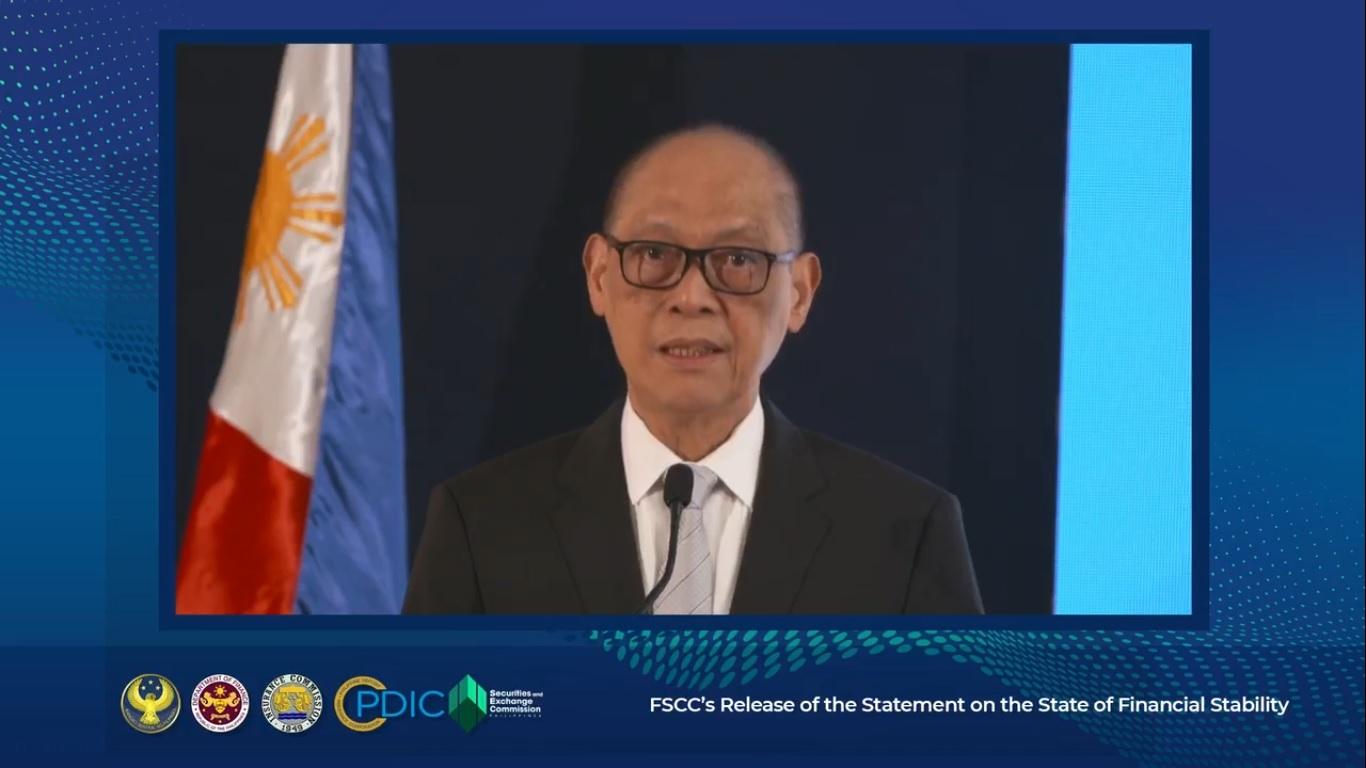Risks to Philippine financial stability external, says coordination council

Risks to Philippine financial stability continue to be external, given the prospects of the global economy amid the inflation environment and the tightening policy, the Financial Stability Coordination Council (FSCC) said Tuesday.
According to FSCC Chairman and Bangko Sentral ng Pilipinas (BSP) Governor Benjamin Diokno, the Philippine situation is “different from the rest of the world.”
“These concerns on the global stage contrast with the Philippines’ macrofinancial conditions,” he said, reading a prepared statement of the FSCC.
Diokno explained that the consumption expenditures per person have increased from March 2020 when the country started to face the COVID-19 pandemic, which he said was support by the recovery in employment.
Productive capacity is also expected to have improved with growth in capital formation, reflecting the expansion of the industry sector, specifically in manufacturing and construction.
The Philippine economy opened the year with an 8.3% growth, marking an acceleration from the 7.8% in the fourth quarter of 2021, and -3.8% in the same quarter last year.
Economic acceleration, however, has been in line with inflation which clocked in at 5.4% in May, the fastest in three years since it came in at 5.2% in December 2018.
The central bank last month hiked policy rates by 25 basis points, the first tightening since 2018, with economists expecting more tightening moving forward.
The US Federal Reserve just last week announced its most aggressive interest rate increase in nearly three decades, noting that it is prepared to do so again in its next meeting.
US Treasury Secretary Janet Yellen also over the weekend said she expects the economy to slow, adding that she does not believe a recession “is at all inevitable.”
“Our path forward will invariably be challenged by these global disruptions. We expect spillovers from the advanced economies to emerging markets economies through cost-push pressures and higher risk premiums,” the FSCC said.
“These are not independent shocks but are interconnected at many levels, creating complex, non-stationary and interlinked cause-and-effect relationships,” it added. — BM, GMA News



